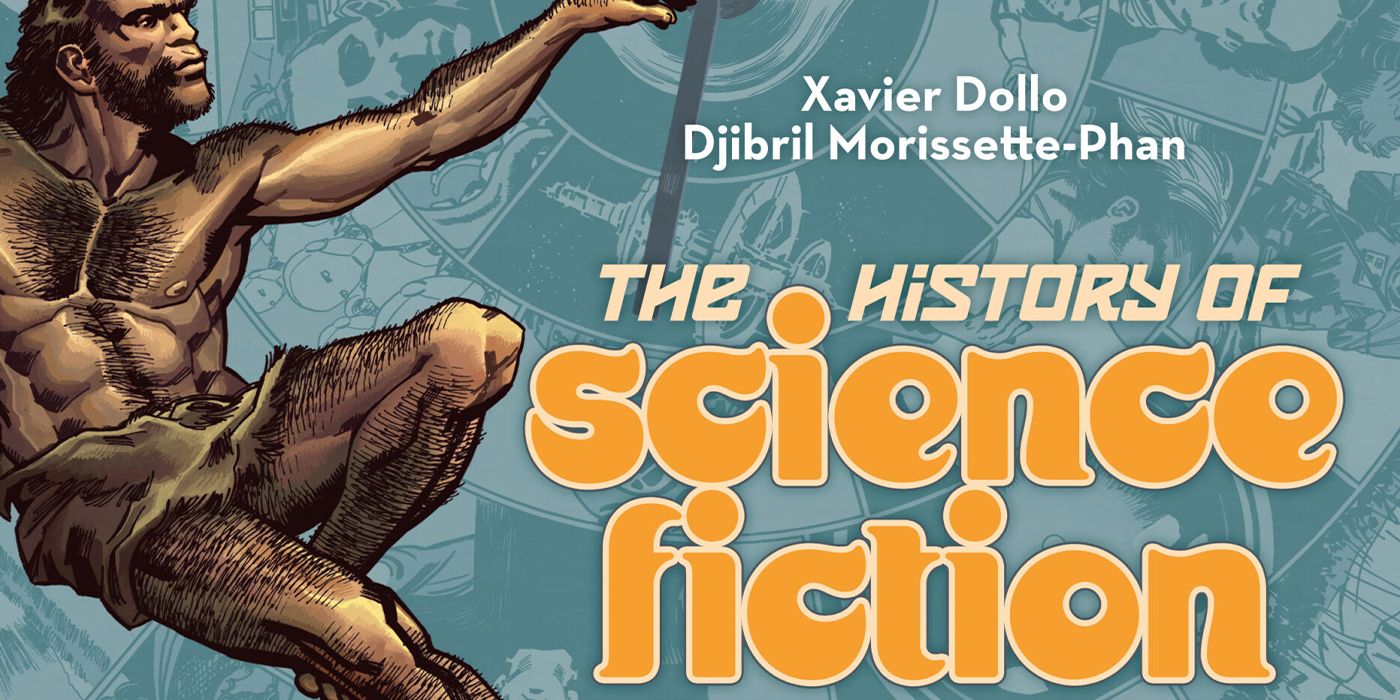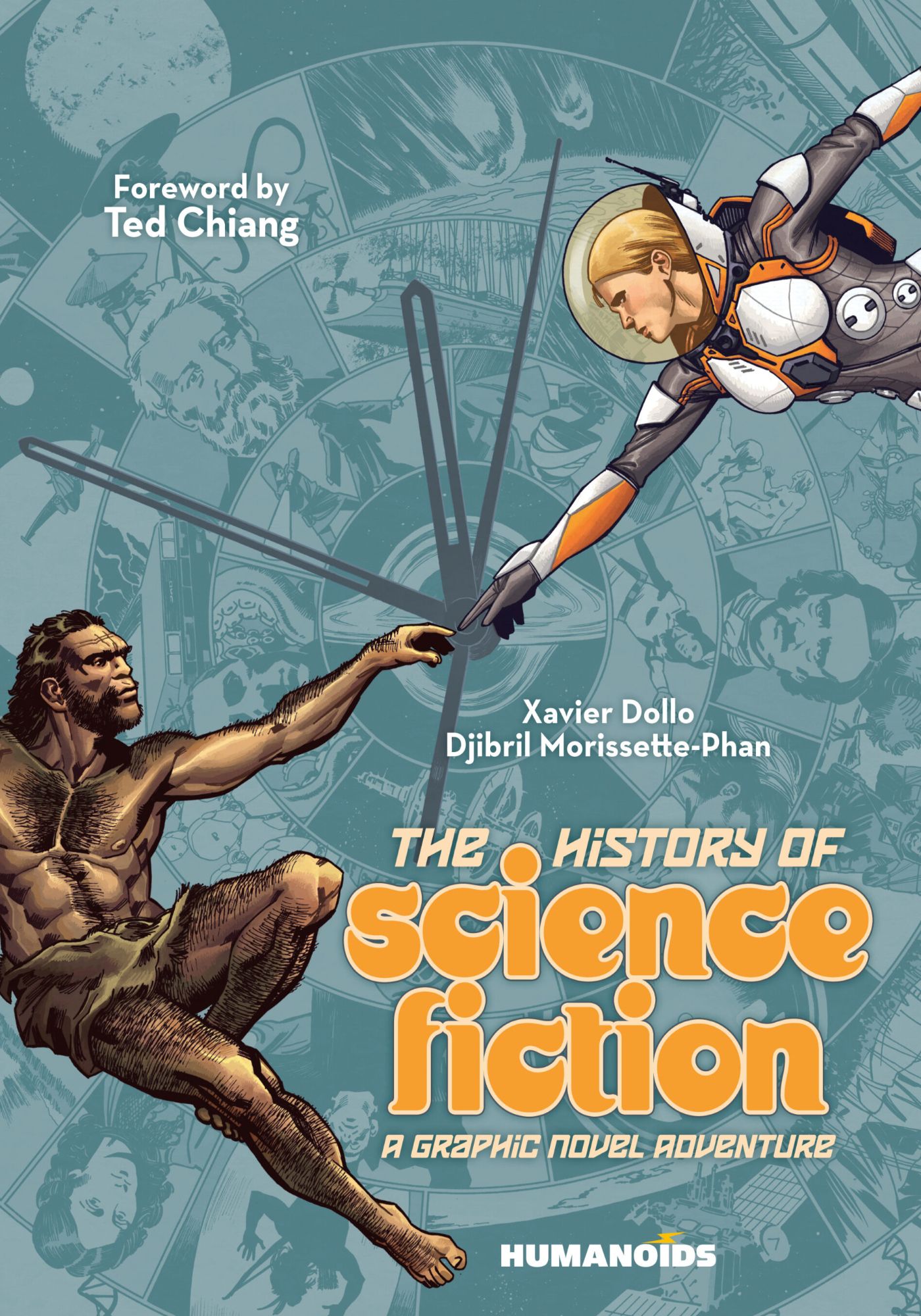Humanoids just released an ambitious new graphic novel, The History of Science Fiction: A Graphic Novel Adventure, which takes a deep dive into the genre from its very beginnings. We spoke with Humanoids publisher Mark Waid about the exciting new project, how it came to be, and what readers can expect from the new graphic novel.
The History of Science Fiction: A Graphic Novel Adventure is an expansive look at the genre from Xavier Dollo and Djibril Morissette-Phan that asks and answers some of the biggest questions in science fiction. From Mary Shelley to Ted Chiang, the book leaves no stone unturned. We talked to Mark Waid about the project and what it was like to bring the book to English readers.
Screenrant: How did this project first come about?
Mark Waid: What happened was it was published by our French office overseas. And I saw the galleys for it and I loved it, even though I couldn't read a word of it. I could certainly tell by the illustrations that this was something that was special. And so had it translated. I loved what I read so we commissioned a few extra pages to sort of cover a little bit more of the American angle on the history. But you know, that it was done by, you know, the original creators, and so it's all Xavier Dollo & Djibril Morissette-Phan and it's all great.
What does the science fiction genre mean to you?
I was a puzzle guy growing up and still am to this day. So I tended to gravitate more toward the hard science stuff, and especially towards Isaac Asimov when I was growing up. Now, looking back, I look at that work in sync. You know, boy, there's no emotional heart to a lot of this stuff. But back then, it struck a chord with me because it was all about puzzles and all about logic and all about, you know, the thinking man being the hero of the day.
So that was a big influence. Also, you know, from a completely different angle, Harlan Ellison was an enormous influence on me. Because it's exactly the opposite, right? Harlan is all about emotion and feelings. The people who are rabid Harlan fans are the ones who found him when they were in their teens. I will die on this hill. But that's when you fall in love with Harlan, because you are at that age, you know, full of emotional turmoil, you have anger about things, but you don't understand a lot and you have no way of expressing it. And Harlan is the original angry young man. Yeah. So he gives voice to your frustrations and your anger with his essays more. So more so than with his actual fiction. And so, the fiction is also full of emotion full of highly charged stuff. He's old school as they are growing up. Those are my two biggest influences.
How big of an undertaking was this project?
This project came to be because of [Xavier Dollo's] love of the material and because of his passion. I mean, I think he felt like he had to write this. And it's phenomenal. I mean, in terms of the level of research, this is why I keep pounding that it's not strictly a graphic novel. I don't want anybody to get the impression that it's the kind of thing you can read in an evening and then just throw away. This thing is going to take you a few days to get through because it's dense but without ever feeling, without ever feeling didactic without ever feeling like it's homework without ever feeling like, you know, it's drudgery because it's entertaining. And I think that's part of the purpose of the sections that are straight up graphic novel, especially the imagined conversations between HG Wells, and Judith Merril and Michael Moorcock. They serve two purposes. First off, they help break up the text so that it doesn't feel like a textbook. And also, What's brilliant about that device that sort of is that it sort of gives you the history of science fiction through the eyes of the people who created it.
The book is super expansive, one page you're shown Arthur C. Clarke on Discovery One, and then a few pages later, it's all about Mary Shelley and Frankenstein...
Oh, yeah. I mean, that's the thing I love most about it is it really takes readers from the very beginnings all the way up to present day. I'm fond of saying, you go from Homer and Mary Shelley, to Ted Chiang and Rebecca Roanhorse.
How familiar were you with Xavier Dollo & Djibril Morissette-Phan's work before this?
Djibril's I was, but I wasn't aware of Xavier. But I have since become a fan. Djibril, I've been watching for a while since he's done work with Marvel over the years. He's an excellent storyteller and he captures the human element really well. And he's great with big bombastic things. But he also he's also very good with the quiet moments, and this is what is needed.
That's a hell of a first impression for Xavier. Right?
Yeah, no kidding. Yeah.
What kind of framing device do you use to tell this story?
Yeah, I mean, it's not super obvious, because it doesn't weave in and out every few pages. I mean, we come back to it, but basically, he wanted to tell it to through the eyes of a couple of robots, and one of them from Clifford Simak City. And the other one, I will say, for copyright and trademark reasons, not unsimilar. Two robots of American fame and fiction and we will call this one Bob. But using using them as the narrative device to go through time and so forth, I thought was really smart.
How important was it to balance this wealth of information and history, but also keeping keeping everything entertaining at the same time?
Right. So it's very important. I mean, it's a graphic novel. No matter how you slice it, it's packaged like a graphic novel: it's illustrated, it has balloons and captions. It's a graphic novel. And if you're not willing to use the tools of graphic novel storytelling, then why not just make it illustrated text? And if you're gonna make an illustrated text, use the medium.
It's kind of miraculous this was pulled off the way it was...
Yeah, I mean, the other thing I like is that he did while it is basically chronological - although, it is not strictly chronological. We take time to do things like sidebar conversations, like where we talk about women in science fiction and why they had to pass themselves off as men for a long time. What is the history of disenfranchised people in science fiction? We have a long way to go, but look at what's been accomplished and the great works that non-white males have managed to create in this industry. All of that, you know, is super important.
Was there stuff added to the this version of the release that wasn't in the original?
The sections specifically about gender politics near the end. There was a conversation with Judith Merril and a couple of others that was added for this. The other thing that was an enormous add was that the all that sidebar material, 'if you like this, you might enjoy this, this and this.' Well, obviously, all of that was in French, and most of that, if not all of it was referring to French movies for novels, French short stories. So, we had the Herculean task before us of replacing with English sources. That was by far the biggest task ahead of us.
What was your favorite time period that the book tackles?
I love the Golden Age. I love the very beginnings with Hugo Gernsback. And I got tied to it in that Julie Schwartz was my first editor. Julie knew all about the Golden Age in the 30s and science fiction becoming a thing. All of those people from the past, they fascinate me.
It really feels like this book has something for everyone
I really believe that. And it's also like, you pick it up thinking that it's a full dinner. And it's, you get you finished with it, you're like, no, it's more of an appetizer because there's so much in there. You're going to find something in here that you enjoy, and you're going to find some direction to go in, if you're so inclined.
It's a very unique experience. I really genuinely believe in my heart that this is a book that's going to be in libraries everywhere for a long time. And it's going to be a textbook in high schools and universities for some time to come. I genuinely believe that's how good and how comprehensive and how well researched this thing is.
Who are some of your favorite modern sci-fi creators?
N.K. Jemisin, Ted Chang, and Rebecca Roanhorse would make my list. I also keep coming back to Warren Ellis and Grant Morrison. I would add Brian K. Vaughn and Fiona Staples just for Saga alone. I think Saga will be remembered for forever. It's like the Lord of the Rings of comics.
Thank you to Mark Waid for the conversation. The History of Science Fiction: A Graphic Novel Adventure is now available in comic book stores now.


